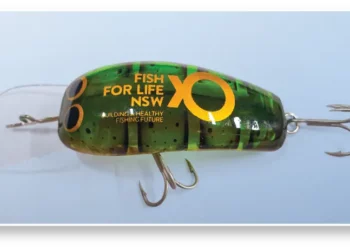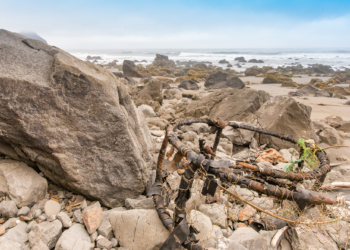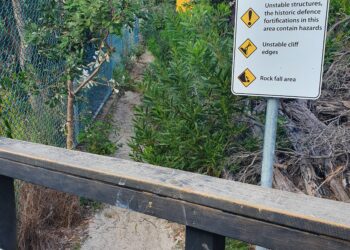The cause of a large scale fish kill at Jervis Bay on the NSW South Coast, that appears to have originated from a sanctuary zone within the region’s marine park, remains a mystery.
Local newspapers have stated the fish kill, that has affected a wide cross section of estuarine and reef species, including mullet, flathead, luderick, whiting, catfish, angel sharks, rock cod and more has been ongoing since early January. In that time holiday makers and local residents of Callala Bay, Hare Bay and Red Rock have been reporting seeing thousands of dead and dying fish on beaches and shallow water.
Experienced spear fisherman and angler, Oliver Wady, told Fishing World he’d never seen anything like it in many years diving and fishing the area. Wady says last week he witnessed large numbers of catfish freely swimming as he launched his boat at a popular Jervis Bay ramp. A few hours later the same fish were floating around dead or dying.
At the popular fishing and diving location of Long Nose reef within Jervis Bay “we saw good numbers of luderick, bream and tailor [upon proceeding to dive]…two hours later we saw fish starting to float,” Wady said.
The fish kill is reportedly widespread throughout Jervis Bay with reports of dead fish spanning a distance of around five kilometres.
One Callala Bay resident had estimated between 3000 and 4000 fish of around 20 different species were dead between Callala Bay and just past Red Rock. One report had stated many of the dead fish were large breeding size flathead. See video outlining the extent of the fish kill below.
It seems that local authorities have known about the fish kill for some time. Local sources told Fisho that a member of the public found a number of obviously sick flathead on the northern side of the bay about three weeks ago. The person collected some of the fish and gave them to marine parks officers who were patrolling the area so they could be tested. The marine parks officers reportedly said the fish would be tested but then allegedly threw them overboard when the person moved away.
Some locals are starting to point the finger at the Jervis Bay Marine Park Authority which reportedly had ignored a call to remove a large build-up of decaying weed in Callalla Bay, despite pleas from residents. This claim has gathered momentum due to the absence of any fish deaths in the nearby St Georges Basin or the Shoalhaven River.
Fisho contacted Jervis Bay Marine Park manager Matt Carr for information on findings relating to the fish kill, but were told to contact NSW Industry & Investment who is now overseeing an investigation. Carr said in today’s Daily Telegraph. “The kill is still happening and we don’t know why exactly.”
While we are yet to receive a comment from NSW Industry & Investment, an ABC news report on January 11 reported that the department’s ecosystems manager manager, Sarah Fairfull, said the fish were too old to test for the cause of death by the time the kill was reported.
“We’ve had reports that water quality was fine in the vicinity of the kill,” she said.
“There were no problems with oxygen or acid or anything else.
“However there was a red tide which is known as noctiluca which was around in the vicinity at the time of the kill and that may have been involved,” she told the ABC.
This event unfortunately bolsters the view of many recreational fishers who believe marine parks fail to address the issues of water quality that are vital for the health and well being of any marine ecosystem.
Sarah Fairfull has since said I&I NSW was investigating the fish kill, in conjunction with the Department of Environment, Climate Change and Water (DECCW) and the Marine Parks Authority.
“Authorities are conducting investigations into the fish kill, but so far on-site testing has found no obvious pollutants or water quality issues present,” Fairfull said.
“However, prior to the fish kill, a large amount of rain had fallen in the area, and algal blooms had been observed in the area.
Samples of fish taken last week are currently being tested and water quality samples have also been taken for analysis.
Results will be made public as soon as the findings are available.
The DECCW has said it will be taking further water and sediment samples for analysis to determine if there are any toxic micro algae, ecotoxins or pesticides present in the water.
Any further fish kills should be reported to Industry and Investment NSW’s 24 hour hotline on 1800 043 536.
Fisho will keep you updated on further findings.
















